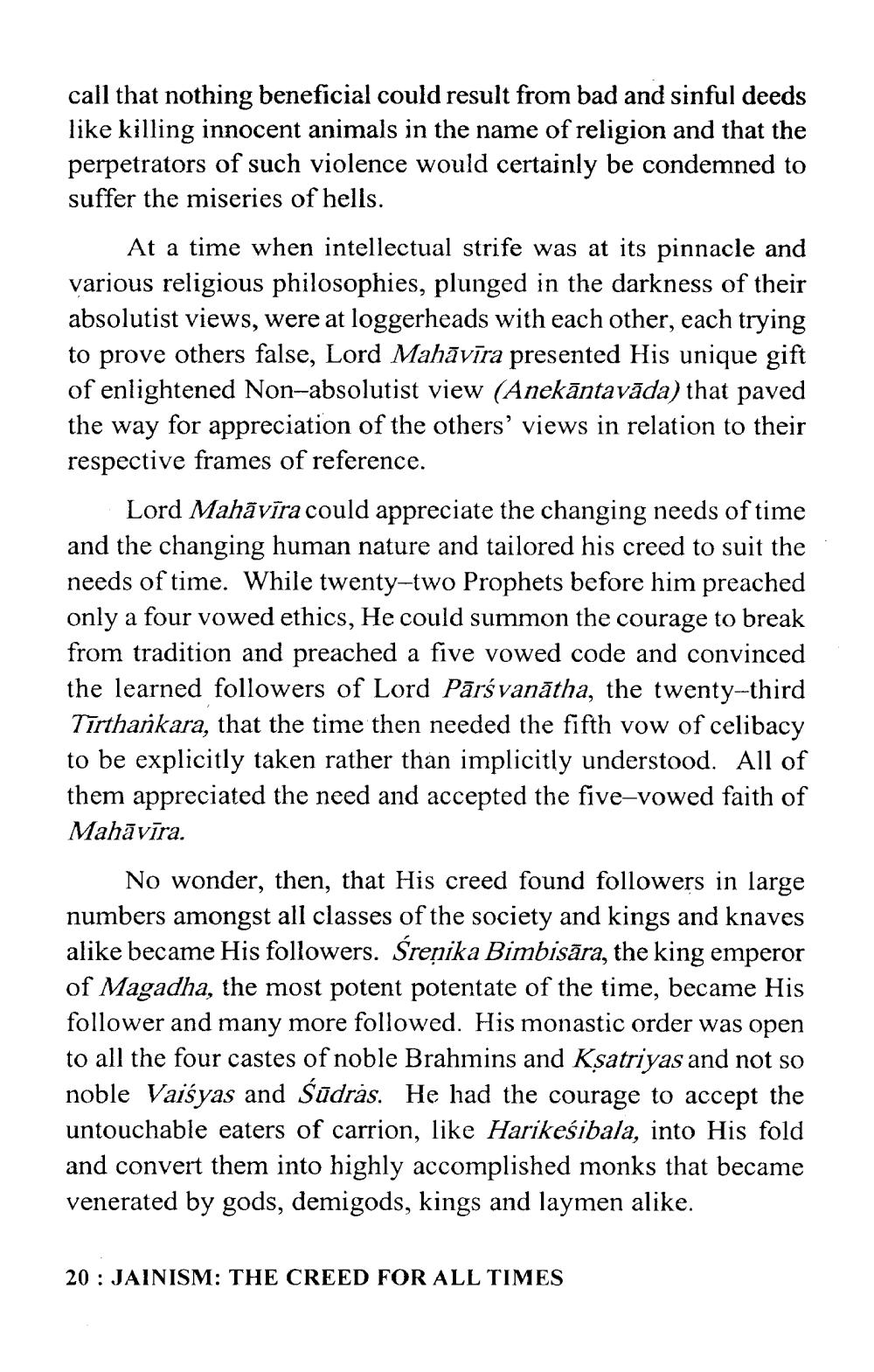________________
call that nothing beneficial could result from bad and sinful deeds like killing innocent animals in the name of religion and that the perpetrators of such violence would certainly be condemned to suffer the miseries of hells.
At a time when intellectual strife was at its pinnacle and various religious philosophies, plunged in the darkness of their absolutist views, were at loggerheads with each other, each trying to prove others false, Lord Mahāvīra presented His unique gift of enlightened Non-absolutist view (Anekāntavāda) that paved the way for appreciation of the others' views in relation to their respective frames of reference.
Lord Mahāvīra could appreciate the changing needs of time and the changing human nature and tailored his creed to suit the needs of time. While twenty-two Prophets before him preached only a four vowed ethics, He could summon the courage to break from tradition and preached a five vowed code and convinced the learned followers of Lord Parsvanatha, the twenty-third Tīrthankara, that the time then needed the fifth vow of celibacy to be explicitly taken rather than implicitly understood. All of them appreciated the need and accepted the five-vowed faith of Mahāvīra.
No wonder, then, that His creed found followers in large numbers amongst all classes of the society and kings and knaves alike became His followers. Śrenika Bimbisāra, the king emperor of Magadha, the most potent potentate of the time, became His follower and many more followed. His monastic order was open to all the four castes of noble Brahmins and Ksatriyas and not so noble Vaisyas and Śūdras. He had the courage to accept the untouchable eaters of carrion, like Harikeśibala, into His fold and convert them into highly accomplished monks that became venerated by gods, demigods, kings and laymen alike.
20 JAINISM: THE CREED FOR ALL TIMES




